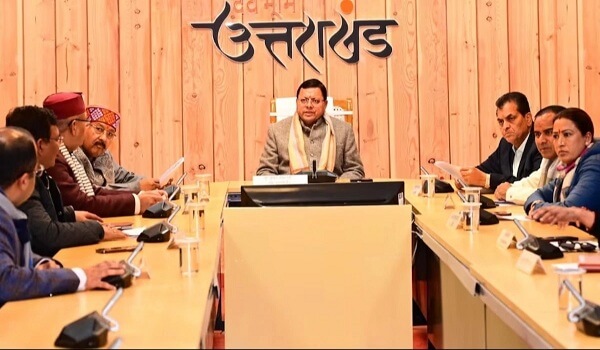Uniform Civil Code (UCC) draft report was approved by the Uttarakhand Cabinet and is likely to be tabled in the state assembly on 6th February 2024, as a bill for enactment.The UCC drafting committee was led by retired Supreme Court judge Ranjana Prakash Desai.The UCC is a proposed set of common laws for all residents of Uttarakhand, regardless of their religion, caste, or gender.
Article 162 of the Indian Constitution indicates that the executive power of a State extends to matters with respect to which the Legislature of the State has power to make laws. In view of the provisions of Entry 5 of the Concurrent List of the Seventh Schedule, the constitution of a Committee to introduce and implement Uniform Civil Code (UCC) per se cannot be challenged as ultra vires.Entry 5 of the Concurrent List deals with “marriage and divorce; infants and minors; adoption; wills, intestacy, and succession; joint family and partition; all matters in respect of which parties in judicial proceedings were immediately before the commencement of this Constitution subject to their personal law.This implies that the state government of Uttarakhand can enact UCC within its territory.
Key Highlights of Uttarakhand’s UCC Draft Report
- The UCC aims to replace distinct personal laws of every religion, focusing on marriage, divorce, adoption, and inheritance, guided by Article 44 of the Constitution.
- Article 44 of the Indian Constitution is a Directive Principle of State Policy (DPSP). It states that the state should try to establish a uniform civil code for all citizens throughout India.
- This code would be a single set of personal laws that would apply to all citizens, regardless of religion.
- Some of the key proposals put forth by the committee include the prohibition of polygamy, halal, iddat (a mandatory period of waiting to be observed by women following the dissolution of a Muslim marriage), triple talaq, and child marriage, uniform age for girls’ marriage across all religions, and mandatory registration of live-in relationships.
- The draft UCC aims to focus on gender equality by treating men and women equally in matters such as inheritance and marriage.
- The Code is also likely to extend an equal property share to Muslim women against the existing 25% share accorded under Muslim personal laws.
- The minimum age for marriage for men and women is set to remain the same,18 years for women and 21 years for men.
- Scheduled tribes (STs) have been exempted from the purview of the bill. The tribal population in the state, which is around 3%, had been voicing its dissent against UCC in the wake of the special status accorded to them.
Concerns Regarding the UCC Draft Report for Uttarakhand
- The UCC draft report may infringe upon the fundamental rights of religious freedom and personal liberty guaranteed by the Constitution of India.
- Some critics argue that the UCC draft report does not respect the diversity and pluralism of India, and imposes a uniform code that may not suit the customs and practices of different communities.
- The UCC draft report may affect the rights and interests of the STs of Uttarakhand.
- Some activists claim that the UCC draft report does not adequately address the issues and aspirations of the STs, and may erode their cultural identity and autonomy.
Uniform Civil Code
- The UCC is mentioned in Article 44 of the Constitution as part of the Directive Principles of State Policy, that the state should work to establish a uniform civil code for all citizens across India.
- However, the Constitution’s framers left it to the government’s discretion to implement the UCC.
- Goa is the only state in India with a UCC, following the Portuguese Civil Code of 1867.

